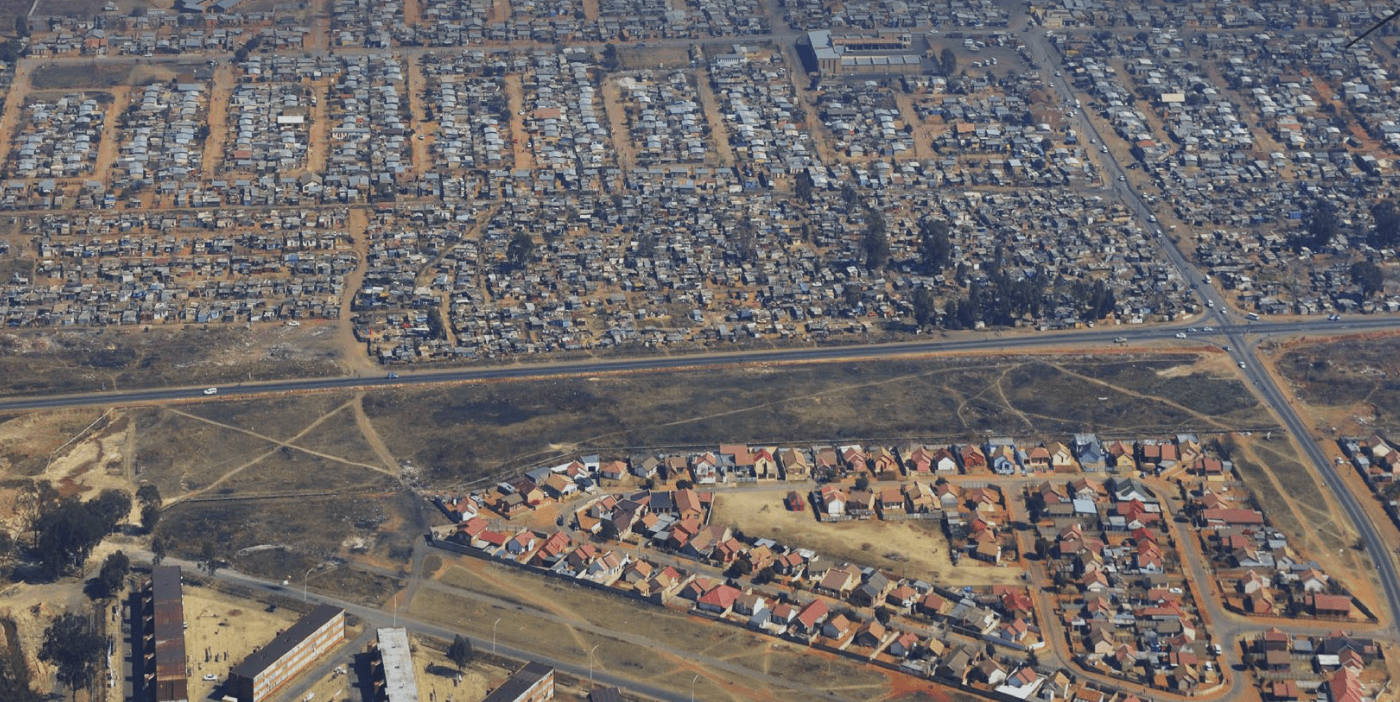PRESS RELEASE
Johannesburg
01 October 2021 (For Immediate Release)
Access to Basic Services: Enabling Progressive Transformation or Entrenching Poverty and Inequality?
The Public Affairs Research Institute (PARI) has released a short report by Dr Tracy Ledger investigating the provision of basic municipal services to low-income households, to answer a key question: is the current model for providing basic services contributing to increased standards of living, reduced household poverty and greater equality?
The basic services provision model in South Africa: enabling progressive transformation or entrenching poverty and inequality?
- Municipal services — electricity, water, sanitation and waste removal — were intended to be a tool to reduce poverty and inequality, raise living standards and facilitate economic opportunities. Local government has the primary responsibility for delivering these services (together with Eskom in respect of electricity).[1]
- Access to quality services is central to raising living standards and supporting livelihood and job creation: most home- and community-based work opportunities requires access to affordable and reliable electricity and water.
- Effective access requires both a physical connection and a cost of service that households can actually afford to pay. The 1998 White Paper on Local Government thus emphasised the importance of ensuring that basic services are affordable to achieve the goal of universal access. When services are unaffordable for poor households, the value of the social wage is eroded, as is its role as a redistributive mechanism.
- The White Paper also advocated for affordable services to ensure that municipalities would get paid for those services: if households could not afford to pay for services, the financial viability of a municipality would be compromised.
- It should be noted, however, that nowhere in the White Paper, or subsequent regulation, is affordability clearly defined — it is unclear at what level services tariffs are, in fact, affordable or unaffordable. There is thus no regulatory benchmark against which affordability can be objectively assessed. This is a critical omission.
- The 1998 White Paper on local government assumed that services tariffs could be set at levels that would be affordable for all households and able to generate sufficient revenue to ensure financially sustainable municipalities. The reality is that neither of these goals is being achieved, and rising household debt – because so many households simply afford to pay – threatens to further undermine municipal financial viability.
- Over the past twenty years, the price of services such as electricity and water have increased well above the rate of inflation. PARI’s research indicates that the poorest households in South Africa are expected to allocate about one quarter of their total income towards the payment of municipal services. Given that these households cannot even afford to purchase sufficient food, this level of municipal charges is clearly unaffordable.
- Millions of households face a stark choice – access electricity and water or put food on the table. Clearly this situation does not meet the over-arching policy goal of affordable universal access.
- The high cost of services is undermining all of the state’s other efforts to reduce poverty and inequality, and address food insecurity and child malnutrition. It also means that poor households cannot engage in a wide range of economic activities that require access to electricity and water.
- To date, the free basic services policies are having a minimal impact on affordability: only a small fraction of poor households actually receive any benefits under these policies.
Urgent action is required to ensure universal access to services: access comprises both physical access and genuine affordability. PARI recommends a ‘Food First’ approach to basic services provision, under which all households that do not have sufficient disposable income to purchase a basic basket of food should receive all services for free. Such a policy will contribute significantly to increasing household income available for food and other basic necessities, and also support a wide range of livelihood opportunities. This alternative approach towards services provision offers a relatively cost-effective means of addressing poverty and food insecurity in millions of households.
The full report can be accessed here.
For interviews with Dr Tracy Ledger: 0725551026; tracyl@pari.org.za; info@pari.org.za
For inquiries about PARI publications, contact Vishanthi Arumugam: communications@pari.org.za
[1] Eskom directly supplies to just over 50 per cent of all households, and a greater percentage of poor households, due to its historical township electrification programme.


